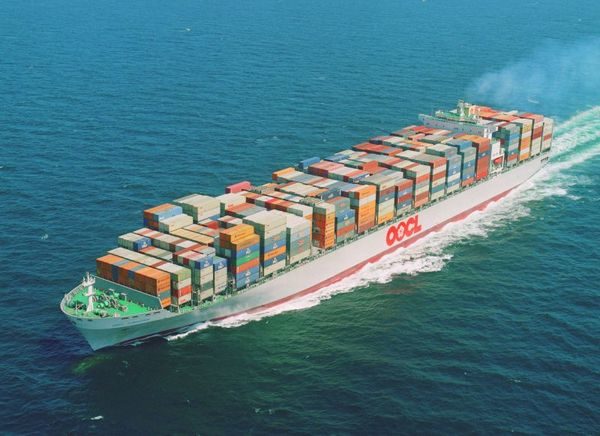UN plan would raise $5 billion from containership companies to stop emissions
New technology is needed to launch zero-carbon emission cargo ships within a decade, sponsor countries say.

A coalition of countries is pitching a plan to the United Nations’ International Maritime Organization (IMO) to require global shipping companies to raise funds for a “moon-shot” effort to deploy widescale fleets of zero-carbon emission cargo ships within a decade.
Announced March 10, the effort would raise $5 billion through “mandatory contributions” by containership companies in a push to decarbonize the maritime transport sector. The plan’s backers say that clean emission technology does not yet exist for large ocean-going ships, so any decarbonization effort can only take place with a significant acceleration of research and development.
As with previous emissions reduction efforts, the investment would likely boost delivery rates for shippers in the short term, as carriers pass on the increased cost. But supporters argue that the investment is necessary to mitigate the longer-term impacts of climate change, such as rising sea levels and volatile storms poised to swamp the world’s cargo ports.
The new approach would enable global maritime cargo carriers to reduce greenhouse gases enough to meet the IMO’s 2050 50% reduction and zero-carbon emissions goals.
It would also follow the current IMO 2020 policy, which limits sulfur emissions from oceangoing ships by requiring vessels to burn fuel with a sulfur content of 0.5% or less, down from the current 3.5%, or else to use exhaust-cleaning “scrubbers" or convert to liquefied natural gas.
The IMO 2020 plan is forecast to reduce acid rain and to avoid more than half a million annual premature deaths worldwide from conditions like strokes, asthma, cancer, and cardiovascular diseases. But industry giants like A.P. Møller-Maersk (Maersk) and Mediterranean Shipping Co. (MSC) have said they will need to pass on the costs of compliance to their customers. The impact could also reduce the growth rate of world container port volumes over a five-year period, according to a report from Drewry Shipping Consultants.
Despite those costs, the effort is necessary to slow the momentum of accelerating global climate change, according to the World Shipping Council, one of the backers of the new plan. “The sponsoring nations have done a very thorough job, mapping out in detail the framework required to get the R&D program up and running as quickly as possible. We are very pleased to see Denmark’s support, as one of the leading maritime nations. The IMRB is a crucial step on the path to decarbonize shipping, and we have no time to lose if we are to meet the UN climate goals,” WSC CEO John Butler said in a release.
The proposal was first submitted by a collection of shipping nations including Georgia, Greece, Japan, Liberia, Malta, Nigeria, Singapore, and Switzerland. It has since added Denmark and Palau. It is also co-sponsored by a collection of global shipowners’ associations: BIMCO, Cruise Lines International Association, IMCA, INTERCARGO, INTERFERRY, International Chamber of Shipping, INTERTANKO, IPTA, and the WSC.
Under terms of the plan, the money would go into an “IMO Maritime Research Fund” to support an International Maritime Research and Development Board (IMRB) to commission collaborative programs for research and development into zero-carbon technologies specifically tailored for maritime applications, including the development of working prototypes. It will also assist carbon dioxide-reduction projects in developing countries, including Pacific island nations which are at high risk of flooding damage from rising sea levels due to their low-lying terrain.
The next step for the plan will be to seek additional sponsors at the next meeting of the IMO Marine Environment Protection Committee in June, and then to lobby for full approval at an IMO meeting in London in November, which will coincide with the next UN Climate Conference (COP 26) in Glasgow.
"We are very pleased to see Denmark’s support, as one of the leading maritime nations. The IMRB is a crucial step on the path to decarbonise shipping, and we have no time to lose if we are to meet the UN climate goals,” says John Butler, CEO of WSC.
— World Shipping Council (@WSC_shipping) March 15, 2021
Read: https://t.co/DXXnFFZRSc pic.twitter.com/gxMxi0kXhT
Related Articles

Copyright ©2024. All Rights ReservedDesign, CMS, Hosting & Web Development :: ePublishing